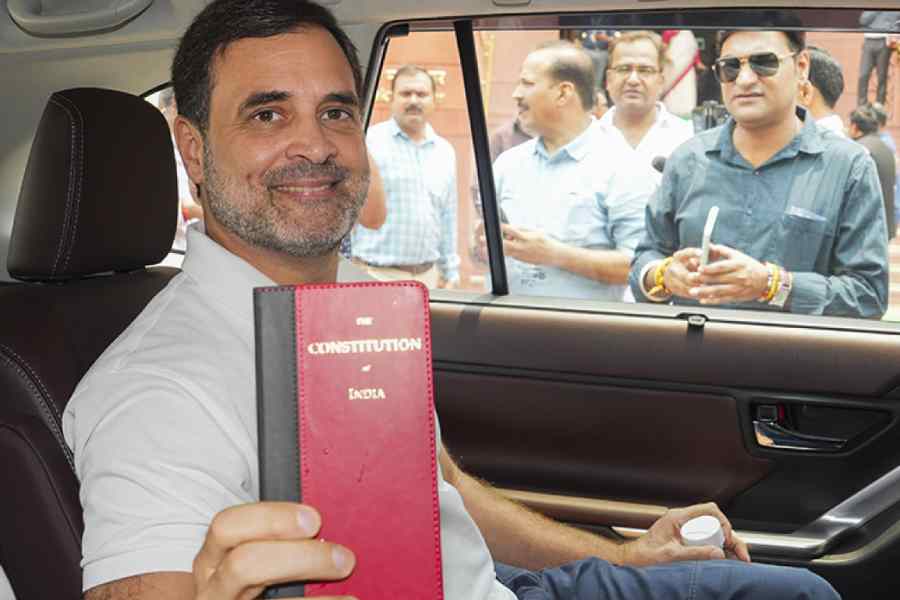What had given an edge to the INDIA-bloc narrative this election season? It has been commonly accepted that the language of constitutionalism has brought the Congress and the Samajwadi Party closer to voters. However, the Constitution has
always been there; so what has changed?
During this election and before it, we saw a process of the subalternisation where the Constitution got a new popularity among the masses. People have been relating to the document in ways that were not visible in earlier elections. The pocket-version of the Constitution, published first in 2009 by the Lucknow-based Eastern Book Company, has been the most visible text in Indian politics. Publishers have noted an increase in the sale of the book and both the pocket-size version and the bigger version of the Constitution book have become a standard gift in political and popular intellectual circles.
However, the journey of the subaltern’s interest in the Constitution did not begin with the Lok Sabha election. The process began much earlier, which gave the INDIA-bloc members an edge when they adopted it as their symbolic document. Socio-economically marginalised communities, particularly the scheduled castes, have held on to the Constitution as a book of historical justice. Given that Bhimrao Ambedkar took the lead in the framing of the Constitution, the document has emerged as a symbol of empowerment and community pride for India’s marginalised people. Both SC and OBC communities relate reservation to the Constitution and to Ambedkar. As the number of educated Dalits and backward communities grow and their presence comes to light in the public realm, this connection gets more popularised through social media, interviews, texts, and public-speaking.
It is not surprising that Dalit votes have significantly shifted to the SP and the Congress in Uttar Pradesh. The vote share of the SP and the Congress in this state has increased from 18.11% and 6.37% in the 2019 Lok Sabha elections to 33.59% and 9.46%, respectively, in the 2024 Lok Sabha elections. Correspondingly, the Bahujan Samaj Party’s vote share has declined from 19.43% to 9.39%. The SP won seven reserved seats and the Congress won one. One of the reasons for the SC voters’ drift towards the SP and the Congress was the value these parties attached to the Constitution. They convinced the people that they were the ones who would protect its values, respect its clauses, and rule by the book’s principles. They converged several issues through the symbolism of the Constitution, such as the filling of backlog reserved seats, the demand for reservation in the private sector, and a caste census.
Dalits were not the only community to hold the book closer to their heart, Muslims also read its Preamble during the anti-CAA protests. The Constitution was read collectively by mothers and daughters joining the protest and it was given a new meaning among the public as people wanted to figure out the constitutional validity of the Citizenship (Amendment) Act. The number of copies sold during the protest reached a new height.
The subaltern awakening of the Constitution continued during the Lok Sabha election when both Rahul Gandhi and Akhilesh Yadav not only spoke of it in their interviews but carried its copies symbolically in their election rallies. They framed their language of the Constitution as an alternative to the Hindutva model of politics. I suggest that the term secularism — sidelined for its limited reach among the masses due to its usurpation by the English-educated elites — has got an alternative expression in the wider language of the Constitution. The book of the Constitution draws together Dalits, Muslims, liberals and backwards and its direct beneficiaries have been the INDIA-bloc parties that have fashioned themselves as its protectors.
Arun Kumar is a historian based at Nottingham University










